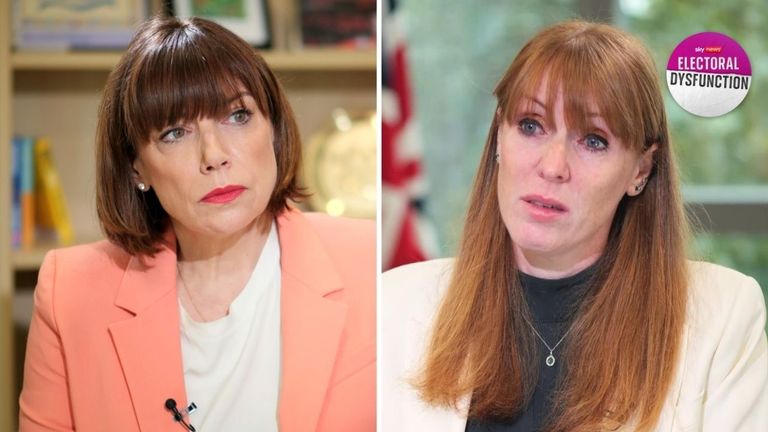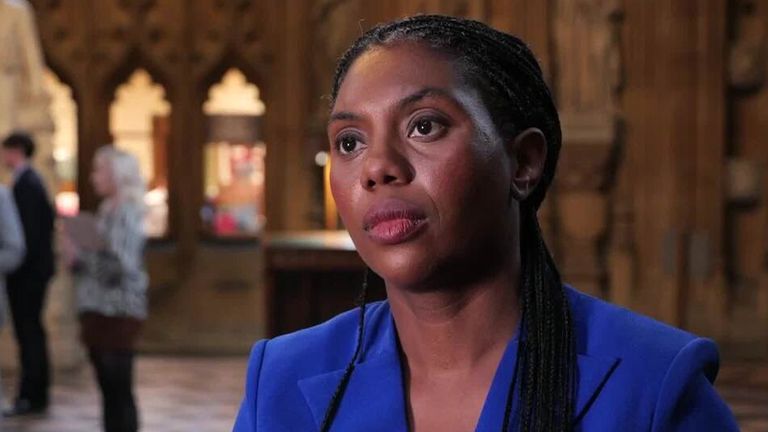Angela Rayner’s explanation for stamp duty error not the end of the matter


Angela Rayner’s explanation for her failure to pay the correct stamp duty on her home in Hove rests on a claim that she was wrongly advised about her tax exposure when buying the property earlier this year.
Following media reports that she had avoided tax of up to £40,000 she took fresh advice and now acknowledges she should have paid the second-home stamp duty surcharge, taking the tax owed on the £800,000 property from £30,000 to £70,000.
She says the confusion lies in the complexity of her domestic affairs, arising from arrangements made to care for her son, who has “lifelong disabilities” and special educational needs.
Politics latest: Angela Rayner facing calls to quit
In 2020 an award was made to Ms Rayner‘s son following what she called “a deeply personal and distressing incident” as a premature baby, and a trust was established to manage the award and his interests.
She is not explicit in her statement but it is presumed the “award” was financial, potentially made in compensation.
Ms Rayner says she and her then husband Mark Rayner committed to transfer their interest in the family home in Ashton-under-Lyne to the trust, of which their son is the sole beneficiary.
In 2023, the couple divorced but agreed that their children would remain in the family home while they routinely moved in and out to care for them, an arrangement known as nesting. At that time, Ms Rayner said some of their interest in the family home passed to her son’s trust
Please use Chrome browser for a more accessible video player
7:19
Rayner admits she didn’t pay enough tax
In January 2025, the deputy prime minister says she sold her remaining interest in the home to her son’s trust and used it as a deposit on a flat in Hove, valued at around £800,000. She took out a mortgage to cover the remainder of the purchase.
At the time, she says she took tax advice and was told that, given she no longer owned any other property, she was only required to pay standard stamp duty, which would have totalled around £30,000.
Money latest: Wetherspoons stops accepting some banknotes in England
Please use Chrome browser for a more accessible video player

3:19
Badenoch: Sack Rayner
Following media reporting last month she says she sought fresh advice from “senior tax counsel” and was told she was in fact liable to pay the second-home stamp duty surcharge, an additional 5% flat charge, because of what she calls “complex deeming provisions” relating to her son’s trust.
Deeming provisions are a legal device that create a “legal fiction” to simplify complex issues, often in relation to tax.
Ms Rayner gives no details of the provisions, but one explanation is that if she has rights under the terms of the trust to live in the family home for life, it should be treated as her main residence for the purposes of stamp duty.
HMRC’s guidance on the higher rate of stamp duty states parents of under-18s are treated as the owners of residential property “even if the property is held through trust and they are not the trustees”.
She says that the Ashton-under-Lyne property remains her family home, where she is registered for official, financial and medical purposes.
Read more:
Rayner admits she should have paid more stamp duty
Rayner came out fighting in Sky interview
Rayner’s tax affairs statement in full
In December 2024, Ms Rayner was granted the use of a grace-and-favour flat in Admiralty House in Whitehall in her role as deputy prime minister, and gave up a rented property in London to move in. She had classified this as her second home for council tax purposes, which as a consequence is paid for by the government.
The advice that counts now is that which Sir Laurie Magnus gives to the prime minister. The government’s independent ethics adviser may want to know if Ms Rayner provided the full facts regarding the trust and her main home to her first tax adviser, or whether by omission the fault lies with her.